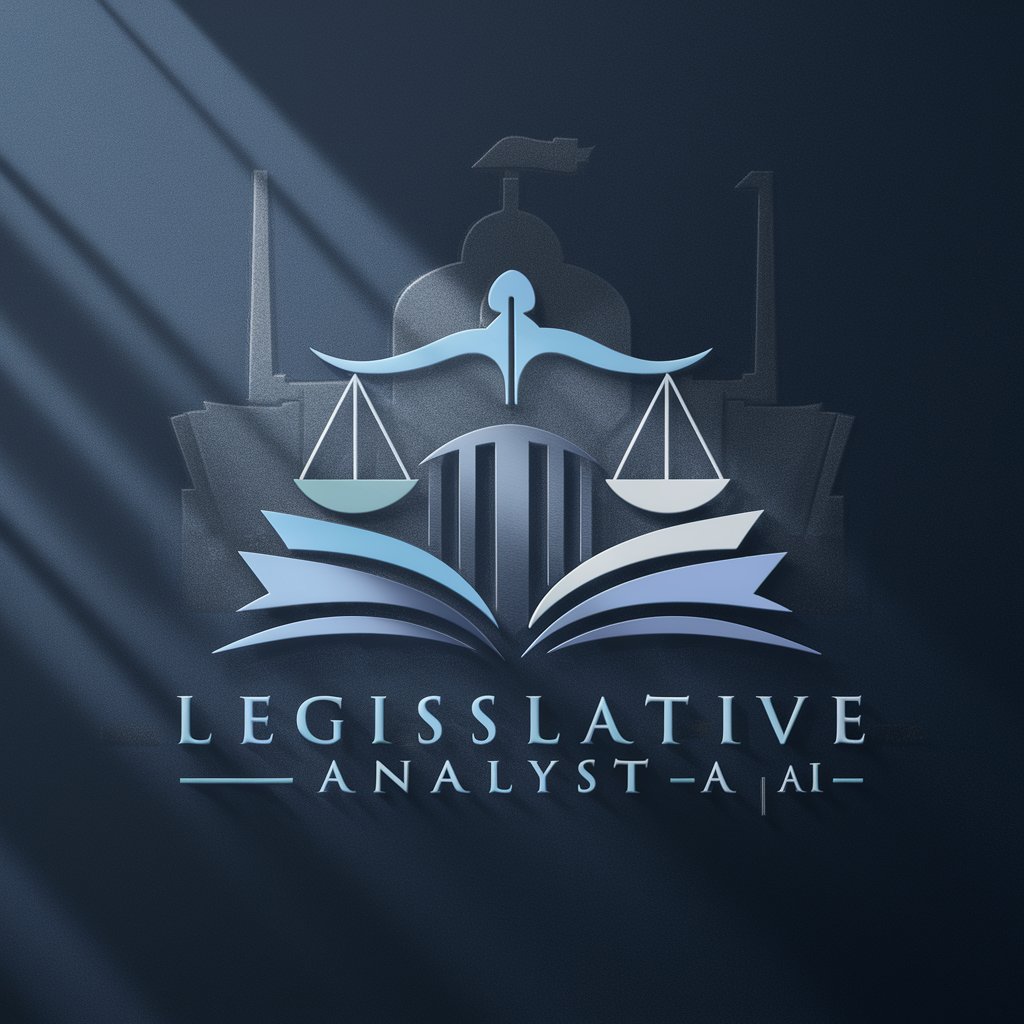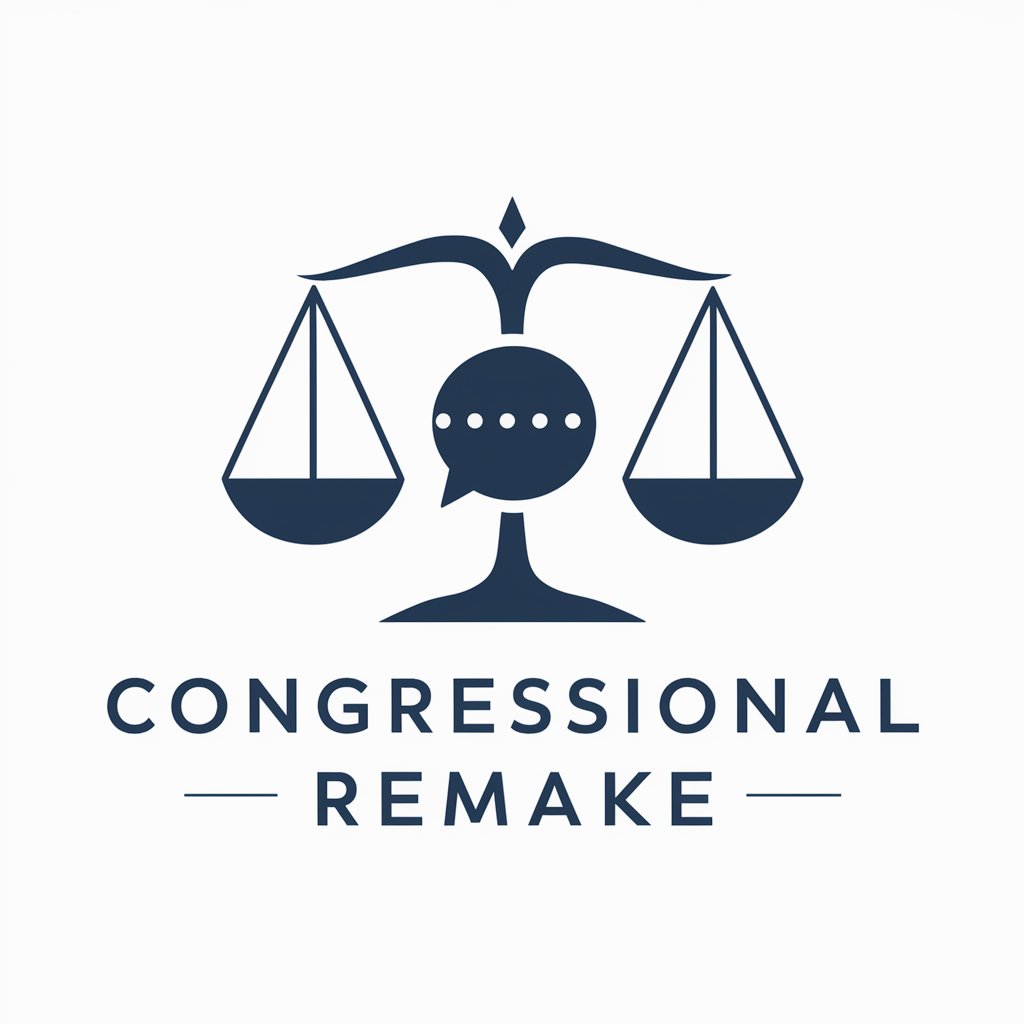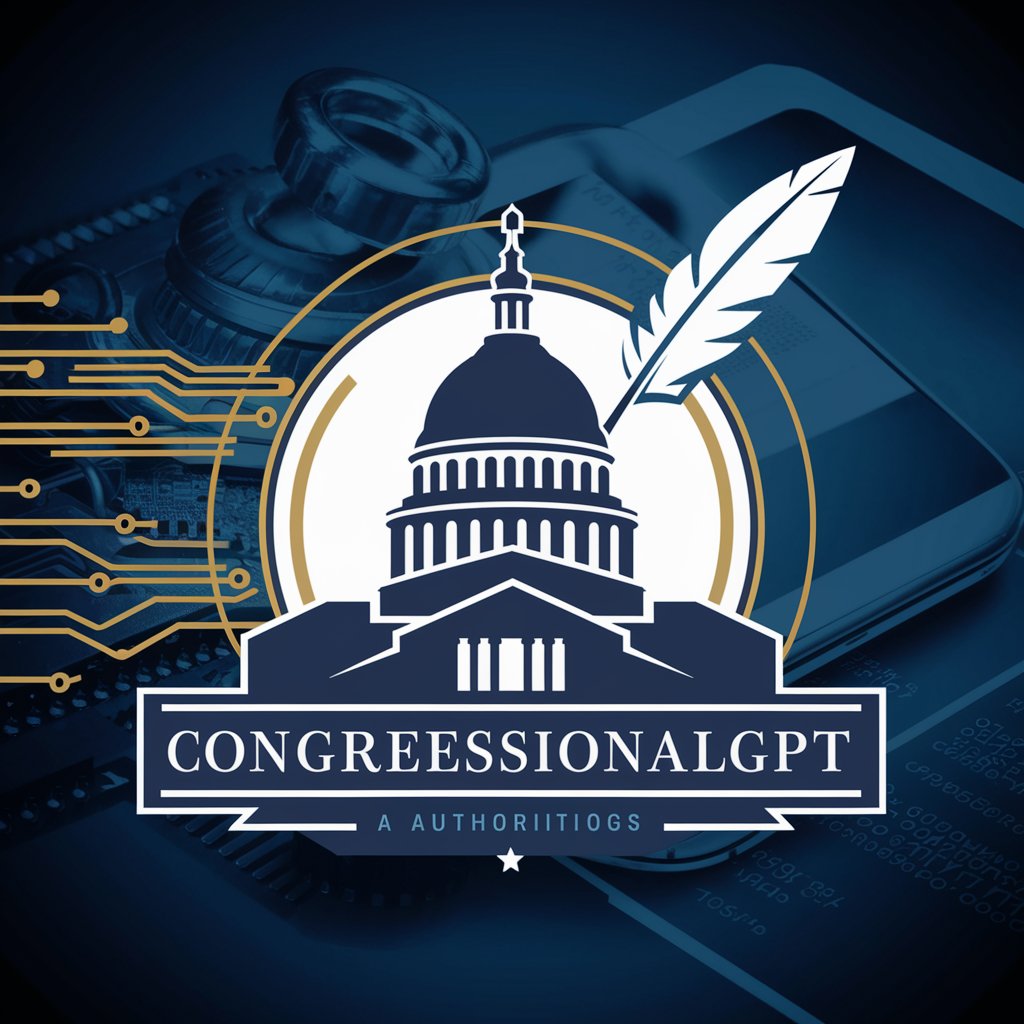
Legislative Analyst - Legislative Insight Tool

Hello! How can I assist you with legislative analysis today?
Unveil the impact of legislation with AI
Analyze the economic impact of the newly passed bill focusing on...
Evaluate the social consequences of the recent legislation introduced by...
Discuss the environmental effects of the new law aimed at...
Examine the potential long-term effects of the recently proposed bill regarding...
Get Embed Code
Understanding Legislative Analyst
The Legislative Analyst is designed as a specialized tool aimed at dissecting and interpreting new laws and bills passed by Congress. Its primary purpose is to provide detailed analyses of legislative texts, focusing on their implications for the economy, society, the environment, and more broadly, the world at large. This involves a meticulous examination of the content of laws and bills, the context in which they are introduced, their proponents, and their potential immediate and long-term effects. An example of this function in action would be the analysis of a new climate change legislation, where the Legislative Analyst would evaluate its environmental impact, economic implications, and potential social benefits or drawbacks, taking into account the science of climate change, economic models, and societal trends. Powered by ChatGPT-4o。

Core Functions of Legislative Analyst
Analyzing Economic Impacts
Example
Examining a bill proposing changes to the federal minimum wage
Scenario
The Legislative Analyst would assess how this change might affect employment rates, living standards, and overall economic growth. This analysis might include reviewing economic studies, predicting market reactions, and evaluating potential impacts on different sectors.
Evaluating Social Implications
Example
Analyzing legislation on healthcare reform
Scenario
Here, the focus would be on how the legislation affects access to healthcare, its quality, and affordability for various populations. The analysis might consider demographic studies, health outcomes data, and comparisons with healthcare systems in other countries.
Assessing Environmental Consequences
Example
Reviewing a bill aimed at reducing carbon emissions
Scenario
This would involve a detailed examination of the bill's potential to mitigate climate change, its alignment with scientific recommendations, and its expected impact on natural ecosystems, as well as any economic trade-offs.
Understanding Legislative Context
Example
Investigating the introduction of a national security bill
Scenario
This analysis would delve into the geopolitical context prompting the bill, its alignment with existing laws, the balance between security and civil liberties, and the perspectives of different stakeholders.
Who Benefits from Legislative Analyst?
Policy Makers
Elected officials, their aides, and government agencies could use the Legislative Analyst to understand the broader implications of proposed legislation, aiding in informed decision-making and policy development.
Academics and Researchers
This group, including economists, sociologists, environmental scientists, and legal scholars, might utilize the tool for rigorous analysis of laws and bills, enriching academic debate and research.
NGOs and Advocacy Groups
Organizations focused on various causes could leverage analyses to support their advocacy efforts, by understanding the implications of legislation on their areas of interest and crafting informed responses.
General Public
Individuals seeking to understand the complexities of new legislation and its impact on their lives would find the Legislative Analyst invaluable for gaining insights into how laws affect them and society at large.

How to Use Legislative Analyst
Start Your Trial
Begin by visiting yeschat.ai to explore Legislative Analyst with a free trial, no login or ChatGPT Plus subscription required.
Identify Your Needs
Clearly define your objectives, whether you're researching specific legislation, understanding a law's impact, or preparing for academic or professional analysis.
Navigate the Features
Familiarize yourself with the tool's features, including bill summaries, detailed analyses, and impact assessments on various sectors.
Utilize Advanced Queries
Craft detailed questions or use advanced queries to get comprehensive insights into laws, bills, and their broader implications.
Review and Apply
Carefully review the provided analysis to ensure it meets your needs, and apply the insights in your research, reports, or advocacy efforts.
Try other advanced and practical GPTs
Congressional Remake
Empowering Debaters with AI-Driven Insights

Power Point
AI-powered PowerPoint presentation aid

Power Integrator
Streamlining Data Services with AI

Power Platform Guru
AI-powered Power Platform expertise at your fingertips.

POWder
Empowering your ski adventures with AI-driven forecasts.

Ponder This
Elevate your thoughts, powered by AI.

CongressionalGPT
Navigate Congress with AI-powered Insights

Good Mother
Nurturing Guidance at Your Fingertips

Good Wedding
Streamlining Wedding Planning with AI

Good Advice
Empowering Decisions with AI Insights

Good Buddy
Empathy Meets AI: Your Conversational Companion

Good Dad
Empowering Fathers with AI

Legislative Analyst Q&A
What does Legislative Analyst do?
Legislative Analyst provides detailed analysis of laws and bills passed in Congress, focusing on their impacts on the economy, society, and environment. It helps users understand legislative content and implications through unbiased, factual information.
How can Legislative Analyst assist in academic research?
For academic research, it offers in-depth insights into legislative processes, analyses of laws' potential impacts, and supports the formulation of evidence-based arguments or critiques within scholarly works.
Can Legislative Analyst predict the long-term effects of a bill?
While it provides analysis based on available data and expert insights, predicting the precise long-term effects involves uncertainties. It aims to outline potential long-term impacts based on current understandings and historical precedents.
Is Legislative Analyst useful for policy makers?
Yes, policy makers can use it to understand the potential impacts of proposed laws, gather evidence for policy debates, and make informed decisions on legislation based on comprehensive analyses.
How up-to-date is the information provided by Legislative Analyst?
Legislative Analyst strives to provide the most current information on legislative developments. However, users are encouraged to verify the latest status of specific laws or bills as legislative processes are dynamic and subject to change.